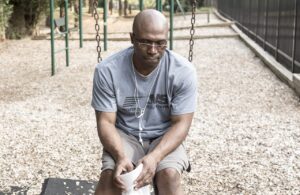Relationships are akin to a journey on the sea; most days, you sail calmly, enjoying the shared moments under the clear skies, but occasionally, stormy weather appears, and you find yourself navigating through choppy waters. When a relationship hits problems, it's the resilience and willingness of the partners to steer through these times that often determine their endurance and strength. Counselling can often serve as a lighthouse, providing guidance back to safer shores.
The beginning
In the early stages of relationship struggles, it's common for partners to attempt to ignore the brewing storm, hoping it will dissipate on its own. However, this approach can lead to a build-up of resentment and miscommunication, eventually causing more significant issues. It's essential to acknowledge the problems, assess their impact honestly, and express your feelings or concerns to your partner. Doing so can facilitate a healthy, open dialogue that is necessary for addressing the root causes of the struggles you face.
Conflicts arise
Some conflicts arise from external pressures such as career demands, financial stress, or familial expectations. These can indirectly put a strain on the relationship, causing friction between partners. In these instances, it's crucial to work as a team, aligning on common goals and supporting one another. Remember that you are both in the same boat, and teamwork can propel you towards better waters.
At other times, the struggles may be more deeply rooted within the relationship itself - issues like loss of trust, differing values or life goals, or maybe patterns of unhealthy communication have come to light. It is in these times that seeking professional help through counselling can be invaluable. A counsellor can act as a neutral mediator, helping both individuals to navigate their feelings and facilitating communication strategies that aim at healing and mutual understanding.
Getting help
Counselling does not signify defeat; rather, it demonstrates a commitment to the relationship and a desire to grow together through adversity. It provides a safe space to explore deep-seated issues, learn more about each other's needs and perspectives, and develop the tools needed for sustaining a supportive bond. For some couples, counselling may even be seen as a preventative measure, a way to strengthen their relationship proactively before issues escalate.
Battling through
No journey is without its bumps, and no relationship is without its trials. The true test lies in how adversity is faced - whether you choose to batten down the hatches and push each other away, or work collaboratively, side by side, ensuring that every word, action, and decision is aimed at returning to a loving equilibrium. In every relationship struggle, there is an opportunity - an opportunity to build trust, demonstrate commitment, and emerge more robust than before.
Hope in the end
Whether you're facing daily misunderstandings or trying to reconcile after a betrayal, taking steps to resolve conflicts and rebuild your relationship is critical. Counselling may very well be a turning point, offering strategies and insights that can help you both grow. By facing problems together, you can maintain and even deepen the connection that brought you together in the first place. So, if your relationship is experiencing turbulence, remember that seeking help and fighting to stay together can often lead to clearer skies and a strengthened bond.




















